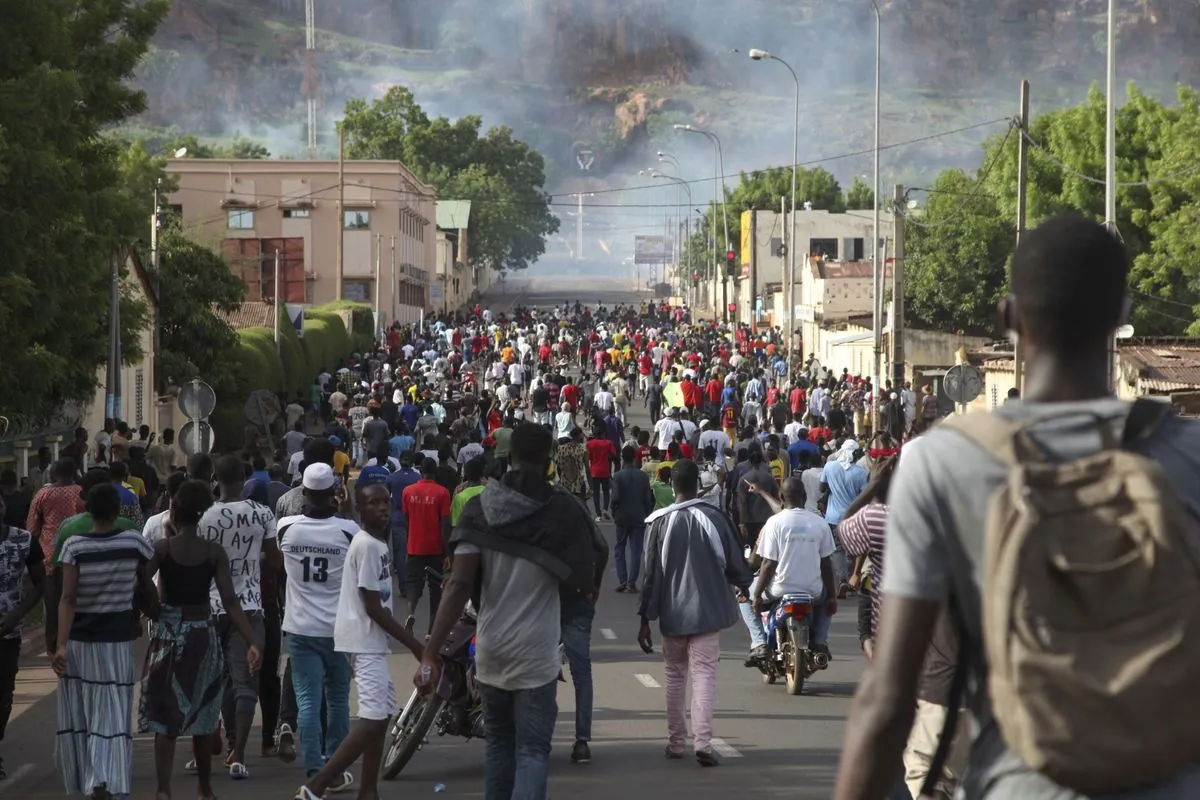Mali Grapples with Economic Woes 4 Years After Military Takeover
Four years post-coup, Mali faces economic challenges and power cuts. Residents express frustration over business impacts, while some remain hopeful for future independence and prosperity.

Four years have passed since the military seized power in Mali, a nation grappling with economic hardships and frequent power outages. The coup, which occurred in August 2020, was fueled by public discontent over corruption, a growing jihadist threat, and financial struggles. Mali, the eighth-largest country in Africa, has since experienced significant changes in its political and economic landscape.
The 2020 coup in Mali triggered a series of similar events across the Sahel region, including in neighboring Burkina Faso and Niger. These nations share common challenges, particularly the fight against jihadist groups linked to al Qaeda and Islamic State. The Islamic State in the Greater Sahara (ISGS), formed in 2015, has been a significant threat to stability in the region.
Mali's current military leadership, which came to power following a second coup in 2021, has indefinitely postponed elections originally scheduled for February, citing technical reasons. This delay has raised concerns about the country's democratic trajectory.
The economic situation in Mali remains precarious. According to the World Bank, economic growth is expected to decelerate to 3.1% in 2024 from 3.5% in 2023. Poverty levels are on the rise, with approximately 90% of Mali's population living in poverty. This is particularly concerning given that Mali has a young population with a median age of 16.3 years.

Residents have expressed frustration over the constant power cuts affecting businesses and households. Oumar Diarra, a furniture maker, shared his concerns:
"The way they've handled the electricity situation is a problem. Many Malians are experiencing huge losses. The government has to make an effort because we are suffering enormously."
The impact of these power outages extends beyond businesses to affect entire families. Allasana Ag Agaly, a silversmith, highlighted the ripple effect on households:
"If the head of the family goes out in the morning and comes back at night without being able to work to bring something to his family, it will affect the children, the women and everyday life."
Despite these challenges, Mali possesses significant natural resources. The country is Africa's third-largest gold producer and has a rich agricultural sector. However, environmental challenges such as desertification pose threats to long-term economic stability.
In a significant shift, Mali's military leaders, along with those in Niger and Burkina Faso, have expelled French and U.N. troops that had been assisting in the fight against Islamist insurgents for a decade. Instead, they have turned to Russia for support. This move reflects a changing geopolitical landscape in the region.
Some residents remain optimistic about Mali's future, viewing current hardships as a necessary step towards greater independence. Alkady Haidara, a resident of Bamako, the capital city, expressed:
"Political independence without economic independence is meaningless. I just want Malians to be patient, because it's part of life. You have to go through a difficult time to have a brighter moment."
As Mali navigates these challenging times, the country's rich cultural heritage, including its renowned musical tradition and historic cities like Timbuktu, serves as a reminder of its resilience and potential for recovery.


































